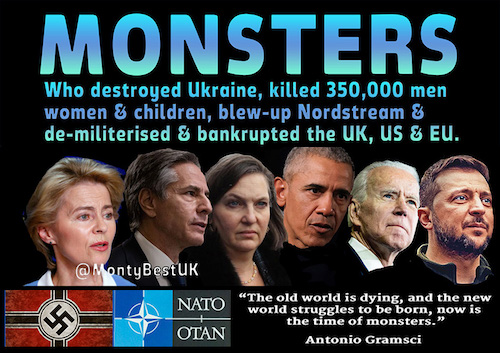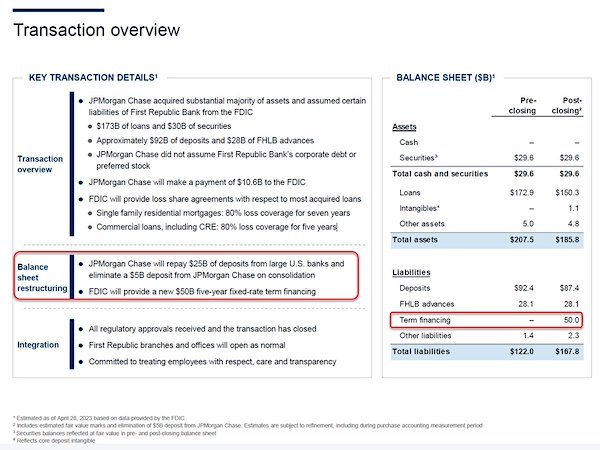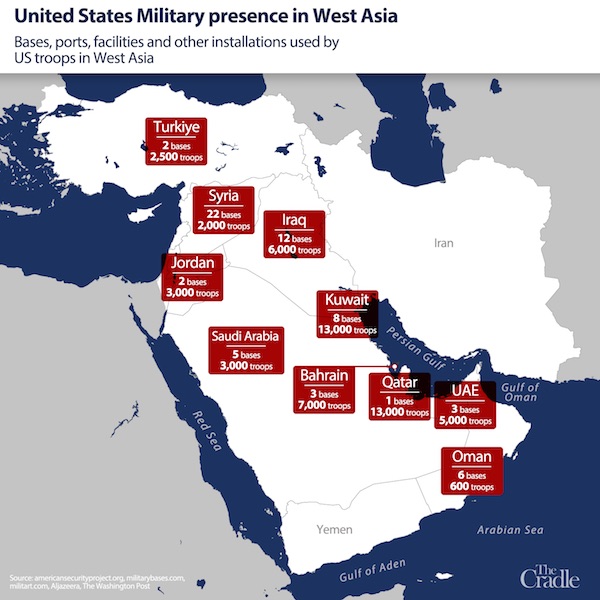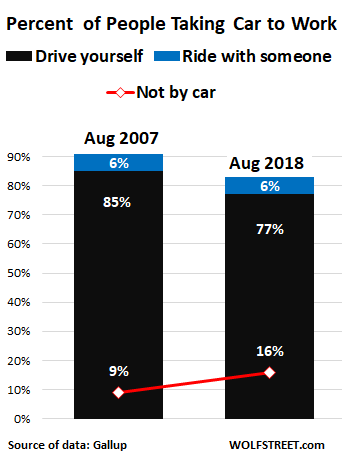
Mark Chagall Self portrait 1914



Russia WW2
https://twitter.com/i/status/1652758877895634944

20 minutes of vaccine injuries
Please watch this 100% verifiable COVID-19 vaccine injury compilation video, which includes tons of examples. This should be shared with EVERYONE and even those who still believe the mainstream narrative. It's time to wake people up! pic.twitter.com/VldUd7YAhQ
— Henry Benedict (@henrywbenedict) April 29, 2023



Law & Order
SHOCK: Trump's rape accuser, E. Jean Carroll, testified she is a Law & Order fan. The far-fetched rape accusation that Trump raped her in a Bergdorf Goodman dressing room was made only AFTER Law & Order episode featured a rape that occurred in a Bergdorf Goodman dressing room.… pic.twitter.com/RyR5w83NB5
— @amuse (@amuse) May 1, 2023

Ukr 2018
On 22nd Dec 2018, the Defense of Ukraine account predicted the outcome of what would become of Zelensky's rule over Ukraine if he was to win the election at the time. Scary how accurate that prediction is playing out in the real world 5 years on. pic.twitter.com/3fdM9smLnh
— Yes, it's me (@ElysiusThor) May 1, 2023

Banned by YouTube, like Bridgen was by the Tories

@KobeissiLetter
In Acquiring First Republic Bank, JP Morgan Has:
1. Bypassed laws against acquiring bank while controlling 10%+ of US deposits
2. Shared $13 billion in losses with the FDIC
3. Received a $50 billion loan from the FDIC
4. Effectively bought back its own deposits
5. Expects to profit $5 billion+ over the next 5 years
6. Added $18 billion in market cap this morning
This crisis has taught us that rules don’t matter in times of panic.



Will there still be a counteroffensive?
• Russia Launches Large-Scale Attack On Ukraine’s Military Industry (RT)
The Russian military has launched a large-scale missile attack against Ukraine’s military industry, disrupting production of weaponry and munitions, the Defense Ministry said on Monday. “Tonight, the Russian Armed Forces of the Russian Federation launched a group missile attack with long-range precision weapons, air and sea based, on the military-industrial complex of Ukraine,” the ministry said during its daily media briefing, adding that “all assigned targets were hit.” While the Russian military did not specify which locations had been targeted exactly, Ukrainian media reported strikes in Kiev, Sumy and Dnepropetrovsk regions. The latter has apparently experienced the worst, with a massive explosion reported on the outskirts of the city of Pavlograd.
Unverified footage circulating online shows the aftermath of the strikes near the city. The attack apparently also caused a massive secondary explosion, followed by multiple lesser blasts. Available footage shows numerous columns of white smoke at the location, typically caused by the detonation of solid-fuel projectiles such as anti-aircraft missiles. The Pavlograd strike destroyed the stockpiles of fuel and ammunition of Ukraine’s 46th Airborne Brigade, which has been readying itself for the much-hyped looming Ukrainian counteroffensive, Vladimir Rogov, a senior Russian official in Zaporozhye Region, has claimed, citing the reports of locals. The strikes also destroyed two S-300 anti-aircraft batteries stationed in the area, the official told news agency TASS. According to Ukrainian emergency services, the explosions in Pavlograd damaged and destroyed up to 80 residential homes and about two dozen multi-story buildings. Emergency services have also acknowledged damage to an unspecified “industrial facility” in the area without revealing its exact nature.
In recent days, both Russia and Ukraine have seemingly ramped up long-range attacks against each other, with the uptick in military activities coming ahead of the long-advertised Ukrainian counteroffensive. Moscow has claimed the destruction of several command posts used by the Ukrainian military, and has reported striking groupings of Ukrainian reserves. Kiev’ for its part, has ramped up shelling of residential areas of Russia’s city of Donetsk, as well as other border regions, inflicting multiple civilian casualties. Ukrainian forces also carried out an attack on an oil depot in Crimea, with the spokeswoman for the Ukrainian military’s southern command, Natalya Gumenyuk, confirming the strike came in preparation for Kiev’s counteroffensive.
https://twitter.com/i/status/1653154884034732032

“..the 46th brigade of the Ukrainian armed forces was refitted in Pavlograd, with the main reserves of fuel products and supplies being there..”
• Russia’s Attack On Pavlograd Deprives Ukraine Of Resources For Advance (TASS)
Three brigades of the Ukrainian armed forces, whose redeployment to the Zaporozhye area completed on April 30, will not be able to shift to active combat actions due to loss of ammunition and fuel stores in Pavlograd as a result of Russia’s attack, chairman of the We Are Together with Russia movement Vladimir Rogov told TASS on Monday. “Redeployment has been completed, with all three brigades at the Orekhov section of the contact line. Part of them have arrived at the settlement of Shcherbaki,” he said. “I think that considering the fact that the 46th brigade of the Ukrainian armed forces was refitted in Pavlograd, with the main reserves of fuel products and supplies being there, they will most likely face logistics problems with supply of all required for combat actions now.
It will take another several days, or probably weeks to prepare, at least 2-3 days depending on how strong the attack on stores in Pavlograd was, whether heavy enough stocks of the Ukrainian armed forces’ reserves were destroyed,” Rogov explained. He said late on Sunday that the Russian forces had carried out strikes on railroad infrastructure and depots for ammunition and fuel in Pavlograd, which Ukrainian troops had been accumulating for an offensive toward Zaporozhye. Rogov told TASS earlier that the Ukrainian army command redeployed the 46th airborne assault brigade, as well as the 116th and 118th brigades to the Zaporozhye area in addition to 12,000 fighters already on the line of engagement near Gulyaipole and Orekhov. According to his assessment, should an offensive be launched in this area, Ukrainian units would avoid fighting in the cities and instead attempt break through to the Sea of Azov east of Melitopol to cut the land corridor to Crimea.
Ukr unit
Ukrainian Unit was brought to the frontline, basically into the same trench the Russians are in, without explanation. Now they wonder if they’re legally liable if they refuse, since there was no order in the first place.
-> I don’t to think a lawyer can help you guys … pic.twitter.com/WhFYdHvGA6— Lord Bebo (@MyLordBebo) May 1, 2023

“It is no wonder that he no longer works for Fox News. The question is how he lasted so long..”
• Why Tucker Carlson Had To Be Purged (Lew Rockwell)
Tucker came to recognize that the media are ideological state apparatuses whose functions are to indoctrinate, mislead, and support the reigning regime and their narratives, whether past, present, or future. Tucker attempted to subvert those media functions and became a danger to the regime. It is no wonder that he no longer works for Fox News. The question is how he lasted so long. As Rectenwald points out, Tucker has challenged the plot of brain-dead Biden and his gang on neocon controllers to start a nuclear war with Russia over the Ukraine: He said last October: “The question of who blew up Russia’s energy pipelines to Europe, which is not just a question in the news, it’s a historical question, we’ve addressed it a couple of times already, is not really much of a question anymore. So, on television, they’re assuring you that obviously the Russians did it. Vladimir Putin sabotaged his own pipelines.
With his nation at war, Putin intentionally destroyed Russia’s most vital national asset. Now why, you ask yourself, would Putin do that? Well, because…actually no one’s explained why Putin would do something like that. Bad people do bad things. That seems to be the idea. The Biden administration is responsible, either directly or through proxies, for the destruction of the Nord Stream pipelines and the environmental catastrophe and the economic collapse that will certainly follow. That is true. It’s done. So the question is, where does that leave us? And that’s the problem. This act leaves us, the United States, with no option but total war with Russia. There is no off-ramp now. There is no way out. We are all in, no matter what that means, no matter where it goes. Are you shocked by this? Was there a vote on this? Did someone ask your opinion? No, but it’s been happening for months in slow motion.
It’s been hidden from public view by the near-total blackout imposed by America media outlets so you probably didn’t know any of the details. For example, in March, the Turkish government tried to broker a peace in Ukraine and they came very, very close. Wasn’t reported widely. Ukraine was prepared to guarantee neutrality, meaning it would not join NATO. That’s what the Russians wanted above all and in return for that, the Russian government would withdraw its forces from Ukraine and that might have been a neat solution, certainly for the rest of us. The global economy wouldn’t need to be destroyed. Nobody would die in a nuclear war. Negotiations to that point advanced to the stage that Vladimir Putin pledged to meet with Zelenskyy to sign a peace treaty and Zelenskyy was ready for it, too and we’re quoting, “I’m ready for a dialog,” he announced, but sadly, Zelenskyy could not act alone. Despite what you may hear on NBC News, Zelenskyy is not the independent leader of a democratic nation. No, not even close. That is a fiction.

“..Rupert Murdoch held a previously unreported call with Ukrainian President Volodymyr Zelenskyy this spring..”
“In other words, not only are we wrong — which is fine — we are disloyal Americans. We’re doing the bidding of a foreign power,” Carlson said. “That is not fine, that is slander.”
• The Murdochs’ Ukraine Connection (Semafor)
Fox News Executive Chairman Rupert Murdoch held a previously unreported call with Ukrainian President Volodymyr Zelenskyy this spring in which the two discussed the war and the anniversary of the deaths of Fox News journalists last March. The Ukrainian president had a similar conversation with Lachlan Murdoch on March 15, which Zelenskyy noted in a little-noticed aside during a national broadcast last month. The conversations came weeks before the Murdochs fired their biggest star and most outspoken critic of American support for Ukraine, Tucker Carlson. Senior Ukrainian officials had made their objections to Carlson’s coverage known to Fox executives, but Zelenskyy did not raise it on the calls with the Murdochs, according to one person familiar with the details of the calls.
The Murdoch’s have not revealed which of Carlson’s many provocations triggered his firing, and there’s no particular suggestion that Zelenskyy — whom Carlson had called a “dictator” — delivered the final blow. But Carlson’s firing will immediately relieve pressure on key Capitol Hill Ukraine supporters whom Carlson had criticized on air — and sometimes pressed behind the scenes to change their positions on the war. Texas Rep. Michael McCaul has been one of the most outspoken Republican supporters of the US support for Ukraine, stepping out of line to occasionally reprimand figures in his own party who do not share his views on the subject. In a segment last year, the Fox News host told viewers that the Republican chairman of the House Foreign Affairs Committee had privately called his show “Russian disinformation.” “In other words, not only are we wrong — which is fine — we are disloyal Americans. We’re doing the bidding of a foreign power,” Carlson said. “That is not fine, that is slander.”
According to two people familiar with the conversation, the then-Fox News host also made his displeasure to McCaul known in a tense private conversation in which Carlson criticized the congressman’s comments, describing the congressman as having a low IQ. (Both Carlson and McCaul’s office declined to discuss the conversation). The populist Republican right remains hostile to the war effort and at times openly sympathetic to Russia. But none of Fox’s other top figures seem to share Carlson’s zeal. “Clearly, he spooked a lot of members into not being fully supportive of Ukraine,” a senior Republican congressional aide told Semafor. Carlson’s ouster, the aide added, “probably reduces the loudest voice out there against U.S. support.” Regardless of the reason for Carlson’s departure, more moderate pro-Ukraine members of the Republican caucus on the Hill are not hiding their relief.
“There have been some that have argued that he was setting foreign policy for the Republican Party, which I find to be bizarre. Certainly not for me,” Sen. Mitt Romney told the Hill. “To the primary [Republican] voter, the active participant, the grassroot voter, he’s a person they listen to and has a big influence.” Washington has a long history of pushing out dissenting voices on issues of war and peace. “Cable news may struggle to find an entertainer equally skilled at skewering comfortable pieties on the left and right,” Lee Harris and Luke Goldstein wrote in the progressive American Prospect, before being drubbed by their colleagues for ignoring Carlson’s appeal to racists.

“..the world’s largest minefield..”. Depleted uranium isn’t even mentioned yet.
• The Consequences Of The Conflict In Ukraine Will Be Felt For Decades (Lavrenin)
Since February of last year, when Russia launched its military offensive in the country, mine explosions have killed about 200 civilians in Ukraine, while hundreds more have been injured. The UN has already called Ukraine the most heavily mined state in the world. Yet the contamination continues to grow because of how positional warfare is carried out. With the conflict far from over, the further laying of explosives could have disastrous consequences. Official reports claim that 250,000 square kilometers (almost 62 million acres) of Ukrainian territory have been mined. This is equal to the entirety of the UK (244,000 square kilometers). According to Prime Minister Denis Shmigal, his country has become the world’s largest minefield, which has even spurred the government to create a special center to deal with the fallout.
Experts believe that the situation in Ukraine is worse than in Afghanistan and Syria. The number of unexploded ordnance, anti-personnel, anti-tank, and other mines and explosive shells is estimated to be in the millions of units. Meanwhile, Ukraine’s minefields are growing exponentially. In the past year, the entire length of the front line on both sides has been mined. They are often laid in a scattered manner and without mapping. Given Ukraine’s large size, this greatly complicates the process of finding and neutralizing them. “Indeed, there is a chance that the mined territories may expand further, both due to the prolongation of the conflict and the likely offensive from either side, which may move hostilities to previously unaffected territories,” Maxim Semenov, a political analyst and specialist in conflicts in the post-Soviet space, told RT.
Official sources also report that the contaminated area is expanding. Last summer, the Ukrainian Deminers Association stated that minefields covered about 133,000 square kilometers of Ukraine, but the number recently announced by Shmigal is already double that. Meanwhile, there are no solutions that can be totally effective, and most importantly, quick and simple. Demining is the exclusive job of sappers. For example, back in the 2000s, an average of 50 people a day were blown up on anti-personnel objects in Angola, one of the most heavily mined countries in the world. To this day, about 500,000 explosive devices remain, despite the fact that dozens of sapper units from all around the world have helped out in the country. It’s also worth noting that both the fighting and the scope of contamination in Angola were a lot less severe than in Ukraine.
Cavoli
US 4 star general Cavali: “Iranian drones do 2 things, first when they succeed they strike targets and second they have to be countered and sometimes they're countered with air defense missiles … it's a cost imposition strategy”
-> Basically an admission that Shaheed drones are… pic.twitter.com/q6dlxsCaQE— Lord Bebo (@MyLordBebo) May 1, 2023

There is no coincidence.
• US Corporations Cash In On Ukraine’s Oil And Gas (Norton)
As the war in Ukraine drags on, the government is selling off state assets in a big privatization spree. US fossil fuel corporations like ExxonMobil, Chevron, and Halliburton are participating in discussions to take over the Eastern European nation’s oil and gas industry, as Kiev pushes to increase production to replace Russian energy exports. This comes soon after Ukraine’s Western-backed leader, Volodymyr Zelensky, sent a friendly video message to a US corporate lobby group, thanking companies like BlackRock, JP Morgan, Goldman Sachs, and Starlink, and promising “big business” for others. In September, Zelensky also symbolically opened the New York Stock Exchange, announcing that his country is “open for business”, offering more than $400 billion in “public-private partnerships, privatization, and private ventures” for US companies.
The Ukrainian government has used the war as an excuse to ram through some of the most aggressive anti-worker laws on Earth. The director of the Kiev-based workers’ rights NGO Labor Initiatives warned of a “full-scale attack on Ukraine’s labour rights”, writing in a German government-funded journal that the “war cannot be used to justify stripping workers of their rights”. In an attempt to bring an end to this war, China has taken the lead in advocating peace talks. Brazil’s President Lula da Silva has backed Beijing’s efforts. The West, on the other hand, has vociferously opposed all attempts at diplomatic negotiations and instead pushed to escalate the NATO proxy war on Russia, sending fighter jets and tanks to Kiev. Ukrainian officials, meanwhile, are treating their country as a for-profit company, frequently travelling to the United States in search of lucrative business opportunities.
The CEO of Ukraine’s state-owned energy company Naftogaz, Oleksiy Chernyshov, flew to Washington, DC this April to meet with US political and corporate officials. The Financial Times reported that Chernyshov sat down with representatives from ExxonMobil and Halliburton, following a similar meeting with Chevron in January. “The negotiations with big US fossil fuel players are part of a strategic push to increase natural gas production that Ukrainian officials believe could help replace Russian supply to Europe in the years ahead”, the newspaper wrote. Halliburton is notorious for its involvement in corruption schemes, involving fat government contracts. In 2017, it was fined $29.2 million by the US Securities and Exchange Commission for violating the Foreign Corrupt Practices Act with highly profitable oilfield services contracts in Angola.
Halliburton is also the world’s biggest provider of fracking services, or hydraulic fracturing, a controversial form of gas extraction that is so environmentally destructive it was banned in the United Kingdom. Responding to the Financial Times report, economist Yanis Varoufakis, who previously served as Greece’s minister of finance, tweeted: “And there you have it. EXXON, HALLIBURTON & CHEVRON, after Iraq, are now taking over the Ukrainian oil and gas fields. Planning to introduce large scale fracking – a clear and present threat to poison U’s agriculture”. Chernyshov, the CEO of Ukraine’s state energy company Naftogaz, told the newspaper, “We want them [Halliburton] to expand [their presence] dramatically. We want them there seriously — boots on the ground”.

“There are currently over 60 western military bases or facilities – and around 50,000 US troops – stationed in West Asia.”
• Russia, Iran, China Aim To Reboot Persian Gulf Security (Askary)
The recent normalization of relations between Iran and Saudi Arabia, brokered by China, is just the tip of the iceberg in terms of a larger paradigm shift in West Asia. Russia, Iran, and China (RIC) are all playing key roles in shaping this change, which could make Anglo-American interventions in the region obsolete. Although Russia, Iran, and China are often viewed as enemies, rivals, or competitors by the west, they have emerged as the main powerbrokers designing exit strategies from many of the western-sponsored crises in West Asia. While Russia and Iran have played more decisive military and security roles in this development, China has weighed in with its economic heft to bring to the fore this regional paradigm shift. Much of this change will be directed at the littoral states of the Persian Gulf, which the west has viewed as its exclusive zone of influence since early last century – for both its strategic waterway routes and its oil and gas wealth.
But in just the past few years, those dynamics have shifted dramatically. Today, Russia, Iran, and China share similar security concerns about western-manipulated conflicts and divisions in their regions. The RIC geography consists of relatively large territories with very diverse ethnic compositions. This diversity has been frequently weaponized by the west – in the form of separatist groups – to destabilize the central governments. Examples are rife: Russia faced a Chechen insurrection which ended with a decisive victory over the separatist elements, but at a high price. In China, the Muslim card was used to destabilize the western regions through support for Uyghur separatist groups that launched numerous terrorist attacks on mainland China. Similarly, Iran’s mosaic of Persian, Azeri, Kurdish, Lur, Arab, and Baloch ethnic groups has been a clear target for the use of separatism as a tool to destabilize the central government.
In the 1980s, Former US National Security Advisor Zbigniew Brzezinski advocated for “The Arc of Crisis” to fracture most of the countries on the border with China and the Soviet Union by supporting religious and ethnic separatist groups. In addition to security concerns related to separatist groups, there are also economic security concerns, such as the control of sensitive maritime route choke points, including the Malacca, Hormuz, and Bab al-Mandab Straits. These critical waterways can be used to cut off energy supplies and trade between China and the Persian Gulf region. To address these threats, Russia, Iran, and China have been conducting regular navy exercises. There are currently over 60 western military bases or facilities – and around 50,000 US troops – stationed in West Asia. Washington claims this oversized military presence is required in order to provide “security and prosperity” for the region, yet recent history suggests they are primarily there to maintain western hegemony.


“The total oil output downfall is expected to amount to 1.66 million barrels per day..”
• OPEC+ States To Further Cut Oil Production (RT)
Several members of the OPEC+ group, including Saudi Arabia and Russia, the cartel’s two biggest oil producers, have begun reducing crude output. The cuts, starting from May and lasting until the end of 2023, are expected to support global oil prices. In particular, Saudi Arabia and Iraq have started reducing oil production by 500,000 barrels per day (bpd) and 211,000 bpd respectively. Meanwhile, the UAE, Kuwait and Kazakhstan are slashing production of oil by 144,000 bpd, 128,000 bpd and 78,000 bpd respectively. Algeria and Oman have also joined the voluntary output reduction, with the former cutting production of crude by 48,000 bpd and the latter by 40,000 bpd. Gabon will see its output reduced by 8,000 bpd.
Earlier this year, Russia’s Deputy Prime Minister Alexander Novak said that Russian producers would extend a voluntary reduction in oil output of 500,000 bpd from the average February level until the end of the current year. The total oil output downfall is expected to amount to 1.66 million barrels per day. The production cuts are aimed at supporting oil prices, which had declined by more than 20% in the twelve months through April 5. The measure is also expected to mitigate the impact on crude oil prices of a sluggish global economy and of the fallout from the banking crisis in the US. The latest decision came as an additional step to the agreements to collectively reduce oil output by two million bpd that came into effect in November 2022 and came as part of the OPEC+ deal.

Syria’s back in the Arab fold..
• Syria Joins The Trend, Ditches US Dollar For Yuan (CP)
In a recent development, Syrian President Bashar al-Assad has called for the abandonment of the US dollar for global transactions and urged the adoption of the Chinese yuan for international settlements. This move comes as part of the ongoing de-dollarization efforts led by the BRICS nations, in response to US sanctions imposed on Russia following the invasion of Ukraine. President al-Assad’s call for the adoption of the Chinese yuan in international settlements comes as the BRICS nations, including Brazil, Russia, India, China, and South Africa, have been increasingly focusing on alternative currencies. As the United States faces various macroeconomic challenges, a shift towards alternative currencies seems inevitable, with the BRICS nations spearheading this effort.
According to President al-Assad, the world needs China’s political and economic presence to facilitate the necessary global power shift. Syria has recognized the merit in the ongoing de-dollarization efforts and believes that the BRICS nations can play a leading role in dismantling the US dollar’s status as a global reserve currency. During a meeting with the Chinese Government’s Special Envoy for the Middle East, Zhai Jun, President al-Assad praised China’s mediation efforts that have led to the rapprochement between Saudi Arabia and Iran, both of which are applying for membership in BRICS. He believes that the improvement of their relations will positively impact the stability of the entire region. Zhai Jun assured President al-Assad that Beijing would continue to support Damascus in international forums and their battle against hegemony, terrorism, and external interference.
China’s diplomacy has been active in the region and beyond as it seeks to expand its influence on the global stage. China has also initiated talks about the potential enlargement of BRICS and is trying to promote the use of the yuan in international trade while supporting efforts to reduce dependence on the US currency. In a recent meeting with Syrian President Bashar al-Assad, Iran’s Minister of Transport and Urban Development Mehrdad Bazrpash called for the expansion of bilateral cooperation between the two countries in various sectors, including banking, energy, transit, transportation, and tourism. He highlighted the potential for utilizing port access to establish shipping lines, thereby boosting exports and imports between Tehran and Damascus.
While Iran has fought for a decade to support the Syrian government, it currently has a small share of Syria’s trade, losing out to financially stronger players. Iranian parliament member Heshmatollah Falahatpisheh stated in May 2020 that Iran had invested $30 billion in Syria and needed to recoup it. With reconstruction costs in Syria estimated between $250-$400 billion, strengthening economic ties with regional countries is crucial. Syria’s call for the adoption of the Chinese yuan for international settlements is a significant development in the ongoing de-dollarization efforts. With the BRICS nations leading the charge, it remains to be seen how this development impacts the Middle East and the potential membership of Saudi Arabia and Iran in the BRICS alliance.


“Russian Deputy Foreign Minister Sergey Vershinin revealed that Moscow was preparing two batches of free fertilizer to be shipped to Kenya and Nigeria..”
• Russia Ramps Up Fertilizer Supply To Asia And Africa (RT)
Russian fertilizer company PhosAgro reported this week a significant exports increase to emerging markets in Asia and Africa, in the face of external restrictions. PhosAgro said its exports of agrochemical products to India saw a five-fold increase in 2022, amounting to 2.7 million tons, while supplies to other Asian countries more than doubled, to 400,000 tons. According to the company, PhosAgro is Russia’s largest exporter of fertilizers to Africa, with shipments to the continent having increased by a quarter last year to 500,000 tons. “Russian business faced unprecedented challenges last year: business as usual was no longer the case when it came to the rules and mechanisms of international trade, including in fertilizers and agricultural products,” the chairman of PhosAgro’s board of directors, Viktor Cherepov stated, noting that the company had been forced to quickly adapt to a new reality.
“Even in this environment, we were able to increase our supplies – primarily to emerging markets. We did everything to ensure that farmers in our priority market of Russia and all around the world had access to our fertilizers, which stand out thanks to their high quality and eco-efficiency,” Cherepov said. PhosAgro’s overall sales are up by 6.4% to 11 million tons year-on-year, marking the highest figure in the history of the company, according to the report. Earlier reports showed that Russia was India’s biggest supplier of phosphate fertilizers last year due to discounts amid Ukraine-related Western sanctions. PhosAgro has reportedly offered Indian companies a heavy discount on its products, while also covering bank commissions for payment transfers. Apart from exports, Russia has been supplying fertilizers and grain to poorer African nations free of charge. One such shipment of some 20,000 tons of fertilizer has reportedly been delivered to Malawi. Last week, Russian Deputy Foreign Minister Sergey Vershinin revealed that Moscow was preparing two batches of free fertilizer to be shipped to Kenya and Nigeria.

“Humans are ingenious animals, enterprising and resilient, though there will surely be fewer of us around..”
• Econ 101, a Fable (Jim Kunstler)
Every story has a beginning, a middle, and an end, of course. As the fossil fuel supply drew closer to its end and further from the long, happy middle time of plenty, the business model for making-and-doing started to shudder and crack. It didn’t fall apart all at once, but it put many makers-and-doers out of business. They stopped making-and-doing. By then, the financial economy was a colossal phantom parasite that dwarfed its host. It was burdened with so much unreality, so many workings dissociated from nature, that it could no longer pretend to be anything but a phantom.To keep the host alive, it upchucked some of what it had sucked out of the host, adulterated with money based on unreal promises, hopes, and dreams. This turned more and more into a spewage of money so debased by broken promises, hopes, and dreams that making-and-doing just about stopped altogether.
That is when the phantom parasite of finance began to dissolve and humans began to regard it as an hallucination that had gone away, dissolved into mist. What remained were a lot humans embedded in nature. And that is the place where the humans of Western Civ find themselves in the 2020s. Western Civ was the first region of the world that tapped into the fossil fuel orgy and it is now the first region exiting this phase of history. Even when the financial hallucination melts into air there will be a lot of real things around that were made before the great age of making-and-doing stopped. Humans are ingenious animals, enterprising and resilient, though there will surely be fewer of us around. These fewer humans will likely be healthier, working more directly in nature and no longer compromised by the pernicious by-products of all the bygone making-and-doing.
We will figure out how to use the left-over useful things to get food out of nature and keep making other useful things. The new making-and-doing will happen at nothing like the former pitch or scale. It may represent a time-out from the lost experience of the old, ever more elaborate and complex makings-and-doings. After a while, humans may discover a new way to get more out of nature. Or maybe not. In the meantime, lodged as we are in the present, in the moment of this epochal transition, anxiety besets many millions of minds. Not a few minds have grown disordered watching all this go on around them, dreading the journey from one disposition of things to the next. Some have made themselves obnoxious. Let them do what they will until they tire themselves out. Keep your own well-ordered minds on the tasks ahead, your own makings and doings within the bounds of what is real. Take some time out to make some music. There are still plenty of good instruments around, and you can always sing. Put a meal together with your friends and loved ones and sing out. It’s all right, Ma, Bob sang out long ago, It’s life and life only.

“It is not in our national interest to go to war with Russia or China. But militarists need war the way a vampire needs blood.”
• The Enemy From Within (Chris Hedges)
America is a stratocracy, a form of government dominated by the military. It is axiomatic among the two ruling parties that there must be a constant preparation for war. The war machine’s massive budgets are sacrosanct. Its billions of dollars in waste and fraud are ignored. Its military fiascos in Southeast Asia, Central Asia and the Middle East have disappeared into the vast cavern of historical amnesia. This amnesia, which means there is never accountability, licenses the war machine to economically disembowel the country and drive the Empire into one self-defeating conflict after another. The militarists win every election. They cannot lose. It is impossible to vote against them. The war state is a Götterdämmerung, as Dwight Macdonald writes, “without the gods.”
[..] The mantra of the militarized state is national security. If every discussion begins with a question of national security, every answer includes force or the threat of force. The preoccupation with internal and external threats divides the world into friend and foe, good and evil. Militarized societies are fertile ground for demagogues. Militarists, like demagogues, see other nations and cultures in their own image – threatening and aggressive. They seek only domination. It was not in our national interest to wage war for two decades across the Middle East. It is not in our national interest to go to war with Russia or China. But militarists need war the way a vampire needs blood.
After the collapse of the Soviet Union, Mikhail Gorbachev and later Vladimir Putin lobbied to be integrated into western economic and military alliances. An alliance that included Russia would have nullified the calls to expand NATO — which the U.S. had promised it would not do beyond the borders of a unified Germany — and have made it impossible to convince countries in eastern and central Europe to spend billions on U.S. military hardware. Moscow’s requests were rebuffed. Russia was made the enemy, whether it wanted to be or not. None of this made us more secure. Washington’s decision to interfere in Ukraine’s domestic affairs by backing a coup in 2014 triggered a civil war and Russia’s subsequent invasion. But for those who profit from war, antagonizing Russia, like antagonizing China, is a good business model. Northrop Grumman and Lockheed Martin saw their stock prices increase by 40 percent and 37 percent respectively as a result of the Ukraine conflict.
A war with China, now an industrial giant, would disrupt the global supply chain with devastating effects on the U.S. and global economy. Apple produces 90 percent of its products in China. U.S. trade with China was $690.6 billion last year. In 2004, U.S. manufacturing output was more than twice China’s. China’s output is now nearly double that of the United States. China produces the largest number of ships, steel and smartphones in the world. It dominates the global production of chemicals, metals, heavy industrial equipment and electronics. It is the world’s largest rare earth mineral exporter, its greatest reserve holder and is responsible for 80 percent of its refining worldwide. Rare earth minerals are essential to the manufacture of computer chips, smartphones, television screens, medical equipment, fluorescent light bulbs, cars, wind turbines, smart bombs, fighter jets and satellite communications.

“..it was during Barack Obama’s two terms that American foreign policy flirted seriously with fascism..”
• The Coming War – Time to Speak Up (John Pilger)
In 2003, I filmed an interview in Washington with Charles Lewis, the acclaimed investigative journalist. We discussed the invasion of Iraq a few months earlier. I asked him, “What if the constitutionally freest media in the world had seriously challenged George W. Bush and Donald Rumsfeld and investigated their claims, instead of spreading what turned out to be crude propaganda?” He replied. “If we journalists had done our job, there is a very, very good chance we would have not gone to war in Iraq.” I put the same question to Dan Rather, the famous CBS anchor, who gave me the same answer. David Rose of the Observer, who had promoted Saddam Hussein’s “threat,” and Rageh Omaar, then the BBC’s Iraq correspondent, gave me the same answer. Rose’s admirable contrition at having been “duped,” spoke for many reporters bereft of his courage to say so.
Their point is worth repeating. Had journalists done their job, had they questioned and investigated the propaganda instead of amplifying it, a million Iraqi men, women and children might be alive today; millions might not have fled their homes; the sectarian war between Sunni and Shia might not have ignited, and Islamic State might not have existed. Cast that truth across the rapacious wars since 1945 ignited by the United States and its “allies” and the conclusion is breathtaking. Is this ever raised in journalism schools? Today, war by media is a key task of so-called mainstream journalism, reminiscent of that described by a Nuremberg prosecutor in 1945: “Before each major aggression, with some few exceptions based on expediency, they initiated a press campaign calculated to weaken their victims and to prepare the German people psychologically… In the propaganda system… it was the daily press and the radio that were the most important weapons.”
One of the persistent strands in American political life is a cultish extremism that approaches fascism. Although Trump was credited with this, it was during Barack Obama’s two terms that American foreign policy flirted seriously with fascism. This was almost never reported. “I believe in American exceptionalism with every fibre of my being,” said Obama, who expanded a favourite presidential pastime, bombing, and death squads known as “special operations” as no other president had done since the first Cold War. According to a Council on Foreign Relations survey, in 2016 Obama dropped 26,171 bombs. That is 72 bombs every day. He bombed the poorest people and people of colour: in Afghanistan, Libya, Yemen, Somalia, Syria, Iraq, Pakistan. Every Tuesday — reported The New York Times — he personally selected those who would be murdered by hellfire missiles fired from drones. Weddings, funerals, shepherds were attacked, along with those attempting to collect the body parts festooning the “terrorist target.”

“..to retrieve the truth buried alive in the cesspit of lies and cynical propaganda operations the deep state — and I am fine with this term — inflicted upon us..”
• The Most Powerful Demolition of Russiagate Yet (Patrick Lawrence)
Sometime in the mid–Russiagate years, when it became clear that America was on a swoon back into the collective neuroses of the 1950s, I began to think we would have to wait for future historians to retrieve the truth buried alive in the cesspit of lies and cynical propaganda operations the deep state — and I am fine with this term — inflicted upon us in response to Donald Trump’s rise in national politics. There seemed no sorting out the godawful mess amid the incessant waves of mis– and disinformation to which our corporate media subjected us. The task, if you were in the scribbling trade, was to write truthfully for readers, of course, but also to contribute, however modestly, to a record that tore a hole in mainstream media’s façade so that later historians looking back on our time could peer through it to see things as they were.
It is not an exotic thought: America has had alternative histories of this kind for nearly as long as it has been called America, and they often reflect revisionist readings of contemporary accounts. Jacob Siegel has just done all of us and all the historians to come an immense service in this way. He recently published an article in Tablet magazine, where he is a senior editor. His subtitle, “Thirteen Ways of Looking at Disinformation,” is literate, gutsy and suggestive of the gloves-off essay underneath it. This is the most powerful, sustained rip into the Russiagate disaster I have yet read — and certainly the best work published to date on the destruction of American democracy at the hands of a ruling elite that invented (1) the figment of a disinformation crisis and (2) the frightening apparatus that now drowns us in disinformation in the name of combating it. “Disinformation is both the name of the crime and the means of covering it up,” Seigel writes pithily, “a weapon that doubles as a disguise.”

@jack has a new tool to sell…
• Jack Dorsey Responds to Elon Musk’s Twitter Leadership (ET)
Twitter’s former CEO, Jack Dorsey, criticized Elon Musk’s leadership and taking over of Twitter of the company in a series of social media posts last week. Users of the social media platform Bluesky asked Dorsey a question about whether Musk was the right owner. His response was, “No.” “No. Nor do I think he acted right after realizing his timing was bad. Nor do I think the board should have forced the sale. It all went south,” Dorsey wrote last week. In April 2022, Dorsey previously described Musk as the “singular solution” to take over Twitter. Further, he said he trusted Musk to “to extend the light of consciousness” amid reports Musk wanted to purchase the social media platform.
He added that he is glad new social media platforms such as Bluesky—a new social media platform that is being called a possible alternative to Twitter that has been recently touted by mainstream media figures and celebrities—are being created and built. Dorsey, who is reportedly still a Twitter shareholder, has backed Bluesky since 2019. “I think he should have walked away and paid the [$1 billion]” breakup fee, he also said. After making a bid to purchase Twitter for $44 billion, or around $54.20 per share, Musk later signaled that he wanted to back out of the deal. It wasn’t clear that either Musk or Twitter had that option, as Musk would have had to provide proof to a Delaware court that he had a good reason for walking away from the deal.
When Dorsey headed Twitter before departing under the company’s previous management, he received widespread criticism for the alleged silencing of right-wing accounts or individuals with viewpoints that strayed too far from the mainstream narrative. While he was in charge, prominent people such as former President Donald Trump, Rep. Marjorie Taylor Greene (R-Ga.), and anti-COVID-19 vaccine writer Alex Berenson were permanently suspended. Meanwhile, a number of journalists have revealed internal Twitter messages over the past several years suggesting there was outsized external influence on Twitter’s content moderators to censor, deplatform, or reduce the reach of posts from a range of prominent accounts. The files also revealed alleged secret blacklists targeting several prominent accounts. Dorsey, in December 2022, suggested that Musk release everything to the public.
“If the goal is transparency to build trust, why not just release everything without filter and let people judge for themselves? Including all discussions around current and future actions?” Dorsey said on Twitter. “Make everything public now.” Musk, who laid off a significant portion of Twitter’s staff after he took over the company, has not publicly responded to Dorsey’s criticism. Reports have indicated that Musk laid off about 7,500 employees, while the Tesla CEO has explained it was done for cost-cutting purposes. Other tech companies, including Meta and Amazon, have laid off significant numbers of employees in recent months amid tightening macroeconomic conditions. As for Dorsey, he unveiled the Bluesky project four years ago, which was initially funded by Twitter to create an “open and decentralized standard for social media.” He wrote at the time that “the goal is for Twitter to ultimately be a client of this standard.”
While there have been claims Bluesky would distinguish itself from Twitter by allowing users to control their own data and be free from corporate influence, some researchers have said otherwise. According to The Wrap, Ashley Gjovik, an American program manager, posted screenshots warning that Bluesky’s terms of service give Dorsey and BlueSky “a ‘perpetual’ and ‘irrevocable’ license to all your content (posts, names, likeness, pics).” She added that “Bluesky can delete your account for any reason, but may refuse to delete it if you ask.” All disputes are resolved through individual arbitration. Over the past week or so, some figures like model Chrissy Teigen and Rep. Alexandria Ocasio-Cortez (D-N.Y.) have stated they’ve joined Bluesky. Over the weekend, a large number of legacy news outlets like The New York Times, The Verge, Vox, and Fortune published articles on the platform.

Two articles about early cancer detection in the same day. Nanoparticles…
• New Nanoparticle Sensors to Detect Early Cancer via Simple Paper Test (ET)
Scientists at the Massachusetts Institute of Technology (MIT) have designed nanoparticle sensors that could diagnose early-stage cancer through a simple urine test on a strip of paper. The scientists said these sensors, designed to detect many cancerous proteins, could also distinguish the type of tumor, how it responds to treatment, and whether it has metastasized. “We are trying to innovate in a context of making technology available to low- and middle-resource settings. Putting this diagnostic on paper is part of our goal of democratizing diagnostics and creating inexpensive technologies that can give you a fast answer at the point of care,” said Sangeeta Bhatia, a biomedical engineer at MIT and senior author of the study published on April 24 in Nature Nanotechnology.
Bhatia’s team had initially investigated the concept of detecting naturally occurring cancer biomarkers, such as proteins or circulating tumor cells, in the patient’s blood samples. However, these biomarkers are hard to find, especially at early stages, prompting the team to create “synthetic biomarkers” that could diagnose cancer by amplifying small-scale changes occurring within small tumors. Nanoparticles previously created by the team can detect the activity of proteases, biological catalysts that can help tumor cells spread. However, since this equipment is not always available, the researchers developed new nanoparticle sensors that could be analyzed more easily and affordably using a technology that reads repetitive DNA sequences called CRISPR.
Specifically, the nanosensors are designed so that when they encounter a tumor, they shed short sequences of DNA that will eventually end up in the patient’s urine. The urine sample can be analyzed using a paper strip that recognizes a signal activated by a CRISPR enzyme called Cas12a. When a particular DNA “barcode” is present, Cas12a enhances the signal so it appears as a dark strip on the paper test.

… and AI.
• UK Artificial Intelligence Tool Can Accurately Identify Cancer (Az.)
Doctors, scientists and researchers in the UK have built an artificial intelligence model that can accurately identify cancer in a development they say could speed up diagnosis of the disease and fast-track patients to treatment, Report informs referring to The Guardian. The AI tool designed by experts at the Royal Marsden NHS foundation trust, the Institute of Cancer Research, London, and Imperial College London can identify whether abnormal growths found on CT scans are cancerous. The algorithm performs more efficiently and effectively than current methods, according to a study. The findings have been published in the Lancet’s eBioMedicine journal.
“In the future, we hope it will improve early detection and potentially make cancer treatment more successful by highlighting high-risk patients and fast-tracking them to earlier intervention,” said Dr Benjamin Hunter, a clinical oncology registrar at the Royal Marsden and a clinical research fellow at Imperial. The team used CT scans of about 500 patients with large lung nodules to develop an AI algorithm using radiomics. The technique can extract vital information from medical images not easily spotted by the human eye. The AI model was then tested to determine if it could accurately identify cancerous nodules. “According to these initial results, our model appears to identify cancerous large lung nodules accurately,” Hunter said. “Next, we plan to test the technology on patients with large lung nodules in clinic to see if it can accurately predict their risk of lung cancer.”




Hammer and nail
How have I lived for 20 years without this knowledgepic.twitter.com/iXexLmbfAk
— Today Years Old (@todayyearsoldig) May 1, 2023



I dare you
https://twitter.com/i/status/1653083623891910680



Rhino
https://twitter.com/i/status/1653061612167675905


Support the Automatic Earth in virustime with Paypal, Bitcoin and Patreon.












